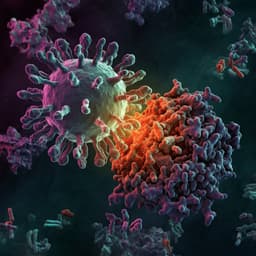
Education
Longitudinal analysis of teacher self-efficacy evolution during a STEAM professional development program: a qualitative case study
H. Jiang, R. Chugh, et al.
This remarkable study by Haozhe Jiang, Ritesh Chugh, Xuesong Zhai, Ke Wang, and Xiaoqin Wang uncovers how a five-stage STEAM professional development program significantly enhances teacher self-efficacy, impacting both performance and student outcomes in innovative ways.
Related Publications
Explore these studies to deepen your understanding of the subject.







